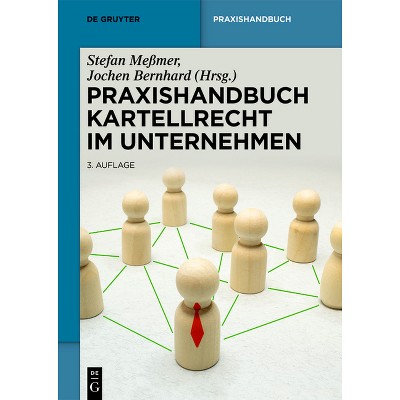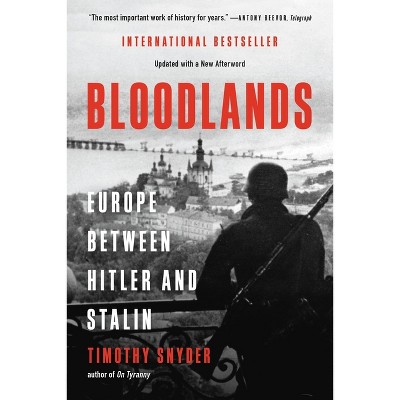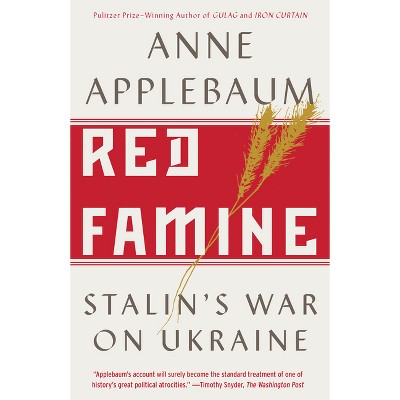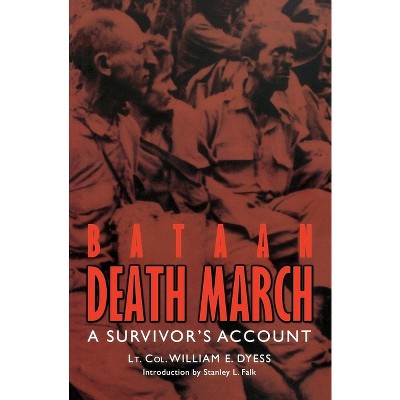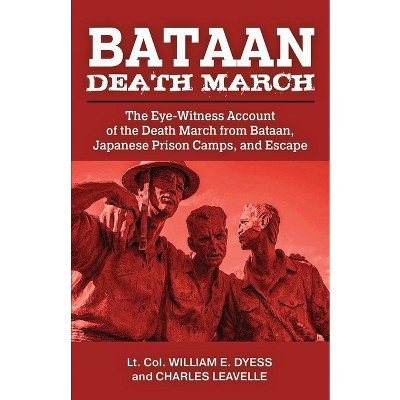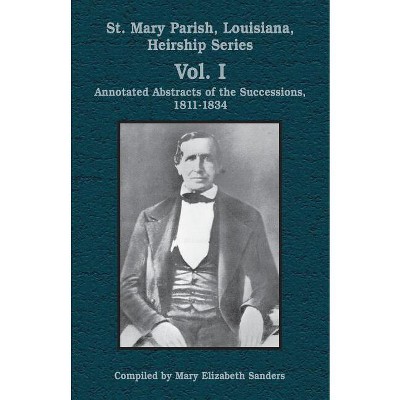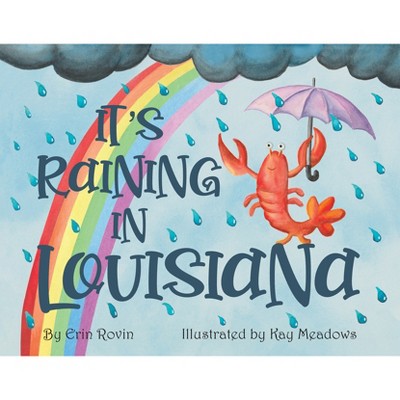Sponsored

Bataan Death March - by James Bollich (Paperback)
In Stock
Sponsored
About this item
Highlights
- From a brave American veteran comes an eyewitness account of a gruesome chapter in World War II history.
- About the Author: Born into a large family, James Bollich grew up on a rice farm near Eunice, Louisiana.
- 222 Pages
- Biography + Autobiography, Military
Description
About the Book
In this moving personal history of the Bataan Death March during World War II, veteran Bollich provides a day-to-day account of the horrors to which he and his fellow POW's were subjected before being liberated.Book Synopsis
From a brave American veteran comes an eyewitness account of a gruesome chapter in World War II history.
Captured when America surrendered the Philippines' Bataan Peninsula, James Bollich experienced first-hand the march that cost more than 8,000 American and Filipino lives. Now, he shares the unforgettable experience of his three and a half years of Japanese imprisonment.
This journal relates his personal experience, first focusing on the sixty-five-mile march that deprived prisoners of food, water, and rest. Prisoners received harsh punishments for any infraction, one of the most brutal of these being the policy of beheading them for taking a sip of water. Rather than force him to give up, these things made Bollich fight for life even more. Witnessing his comrades falling beside him and watching his own body waste away to ninety pounds, he never yielded his will to survive.
After completing the march, he remained a prisoner of war, first at an old Philippine army base, then in another camp at Mukden, Manchuria. He relates his imprisonment in detail, from starvation and torture to digging their own comrades graves in the hot sun, without hats or water. Through it all, he remained courageous and hopeful that he would one day make it back home. His story reminds both past and present generations of the horror and brutality of the Pacific war, all the while providing an inspiring testament to the will of the human spirit.
This journal recounts the 65-mile journey, during which prisoners had no food, water, or rest. The author survived the POW camps on the Philippine island of Luzon.
From the Back Cover
"I salute the author for writing his story; doing so must have caused him many a restless night and not a few tears. He has served all his fellow POWs well by writing this book. I recommend it to anyone."
-The Quan, American Defenders of Bataan & Corridor, Inc.
In Bataan Death March: A Soldier's Story, author James Bollich provides a chilling, eyewitness account of this gruesome chapter of World War II history. Captured when America surrendered the Philippines' Bataan peninsula, Bollich survived three and a half years' imprisonment by the Japanese. From the horrors of the Death March to the cruel deprivations of prison life, he maintained his will to survive even as his comrades fell beside him and his body wasted to fewer than one hundred pounds.
Author James Bollich left the University of Southwestern Louisiana to enlist in the United States Army Air Corps. After the war, he completed his bachelor's degree and was awarded a Fulbright scholarship to pursue geological research at the University of Queensland, Australia. Bollich worked as a subsurface petroleum geologist until his retirement in 1986. A recipient of the Daughters of the American Revolution Medal of Honor, he and his wife, Celia, live in Lafayette, Louisiana.
About the Author
Born into a large family, James Bollich grew up on a rice farm near Eunice, Louisiana. He credits his disciplined farm upbringing and the patience and endurance he learned during the Depression era as reasons for his survival during World War II. He graduated from St. Edmund High School in Eunice and studied engineering at the University of Southern Louisiana for three semesters before joining the Army Air Corps in 1940. He was stationed in the Philippines when war broke out with Japan and, before the surrender in April 1942, was named warrant officer, a promotion Bollich knew nothing of until he read newspaper clippings about it decades later. One of the few survivors of the Japanese torture and imprisonment, he wrote about his experiences in Bataan Death March: A Soldierís Story. The book reveals the U.S. troopsí three years of hardship, including starvation, pneumonia, and torture. It is a story that many people are unaware of, because the government requested that the ex-POWs not tell their story when they returned. After the war, the author continued his education at University of Southwestern Louisiana and was awarded a Fulbright scholarship to do geological research at the University of Queensland, Australia. He is an active member of the Acadiana Writers Guild, and he has traveled to more than thirty countries. Bollich was most awarded the Daughters of the Revolution Medal of Honor, which recognizes a United States citizen who has shown outstanding leadership, trustworthiness, service, and patriotism. A retired geologist, Bollich is a life member of the American Legion, Veterans of Foreign Wars, Military Order of the Purple Heart, and a member of the 27th Bombardment Squadron. A father and grandfather, he lives with his wife, Celia, in Lafayette, Louisiana.Shipping details
Return details
Frequently bought together

Guests also viewed





